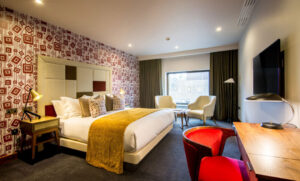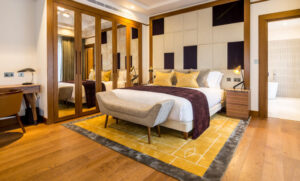Introduction to Contemporary Contract Furniture
In the fast-paced world of modern business, the design and functionality of office spaces play a crucial role in shaping employee productivity, satisfaction, and overall success. As organizations seek to create dynamic and inspiring work environments, the demand for contemporary contract furniture continues to rise. This article explores the concept of contemporary contract furniture, its defining characteristics, and its impact on modern workspaces.
Understanding Contemporary Contract Furniture
Defining Contemporary Design
Contemporary design refers to the style and aesthetic trends that are popular at the present moment. In contrast to traditional or classic designs, contemporary design embraces simplicity, minimalism, and innovation. Manufacturers apply contemporary design principles to create sleek, functional, and visually appealing pieces of contract furniture that align with the needs and preferences of today’s workforce.
Key Characteristics of Contemporary Contract Furniture
Contemporary contract furniture is distinguished by several key characteristics that set it apart from traditional or outdated designs:
- Clean Lines and Minimalist Aesthetics: Contemporary furniture is known for its clean lines, geometric shapes, and minimalist aesthetics. These design elements contribute to a sense of simplicity, sophistication, and clarity in the workspace.
- Innovative Materials and Construction Techniques: Contemporary contract furniture often incorporates innovative materials and construction techniques to achieve sleek and lightweight designs. Manufacturers commonly use materials such as glass, metal, and molded plastics to create visually striking pieces that are both functional and durable.
- Versatility and Adaptability: Contemporary furniture is designed with versatility and adaptability in mind, allowing it to meet the evolving needs of modern workspaces. Modular furniture systems, adjustable components, and multifunctional pieces enable users to customize their environment and optimize space efficiency.
- Ergonomic Considerations: In addition to aesthetic appeal, contemporary contract furniture prioritizes ergonomic comfort and functionality. Ergonomic chairs, adjustable desks, and supportive seating solutions are essential components of contemporary workspaces, promoting health, well-being, and productivity among employees.
Applications of Contemporary Contract Furniture
Office Environments
In corporate office environments, contemporary contract furniture plays a crucial role in creating a professional yet inviting atmosphere. Sleek desks, ergonomic chairs, and modular storage solutions help maximize space efficiency and promote collaboration and productivity among employees. Additionally, contemporary design elements such as open layouts, natural light, and biophilic elements contribute to a sense of openness, creativity, and well-being in the workplace.
Hospitality and Collaborative Spaces
Contemporary contract furniture is also widely used in hospitality and collaborative spaces, such as coworking hubs, conference rooms, and breakout areas. Versatile seating arrangements, adjustable tables, and mobile workstations facilitate flexibility and adaptability, accommodating diverse activities and group sizes. Comfortable lounge seating, stylish cafe tables, and acoustic privacy screens create inviting environments for informal meetings, networking events, and creative brainstorming sessions.
Retail and Public Settings
In retail and public settings, contemporary contract furniture plays a vital role in shaping the customer experience and brand identity. Sleek display fixtures, modular shelving units, and interactive kiosks enhance product visibility and engagement, while ergonomic seating solutions provide comfort and convenience for shoppers. By integrating contemporary design elements into retail environments, businesses can create memorable and immersive experiences that resonate with customers and reinforce brand values.
Trends and Innovations in Contemporary Contract Furniture
Technological Integration
One of the key trends in contemporary contract furniture is the integration of technology to enhance functionality and connectivity in the workplace. Manufacturers incorporate wireless charging stations, built-in power outlets, and USB ports into desks, tables, and seating solutions, enabling employees to stay connected and productive throughout the day. Additionally, smart furniture systems equipped with sensors and IoT capabilities enable real-time monitoring of usage patterns and environmental conditions, leading to more efficient space management and resource allocation.
Sustainable Design
Another emerging trend in contemporary contract furniture is a focus on sustainability and environmental responsibility. Manufacturers are increasingly incorporating eco-friendly materials, such as recycled plastics, reclaimed wood, and low-emission finishes, into their designs to minimize environmental impact and promote circularity. Additionally, sustainable production practices, such as energy-efficient manufacturing processes and waste reduction initiatives, are becoming standard practices within the industry, reflecting a growing awareness of the importance of sustainability in furniture design.
Customization and Personalization
Contemporary contract furniture is becoming increasingly customizable and personalized, allowing businesses to tailor their environments to suit their unique needs and branding requirements. Modular furniture systems, configurable seating arrangements, and customizable finishes and upholstery options enable organizations to create bespoke solutions that reflect their corporate identity and enhance employee engagement and satisfaction. By offering a high degree of customization, manufacturers can cater to diverse preferences and foster a sense of ownership and pride among users.
Conclusion: The Future of Contemporary Contract Furniture
In conclusion, contemporary contract furniture plays a vital role in shaping modern workspaces and environments. With its emphasis on clean lines, minimalist aesthetics, and innovative functionality, contemporary furniture enhances productivity, collaboration, and well-being in the workplace. By embracing trends such as technological integration, sustainable design, and customization, manufacturers position themselves to meet the evolving needs and preferences of today’s businesses and organizations. As the demand for dynamic and inspiring work environments continues to grow, contemporary contract furniture will remain at the forefront of workplace design, driving innovation and creativity in the corporate world.
Follow Us on Linkedin




